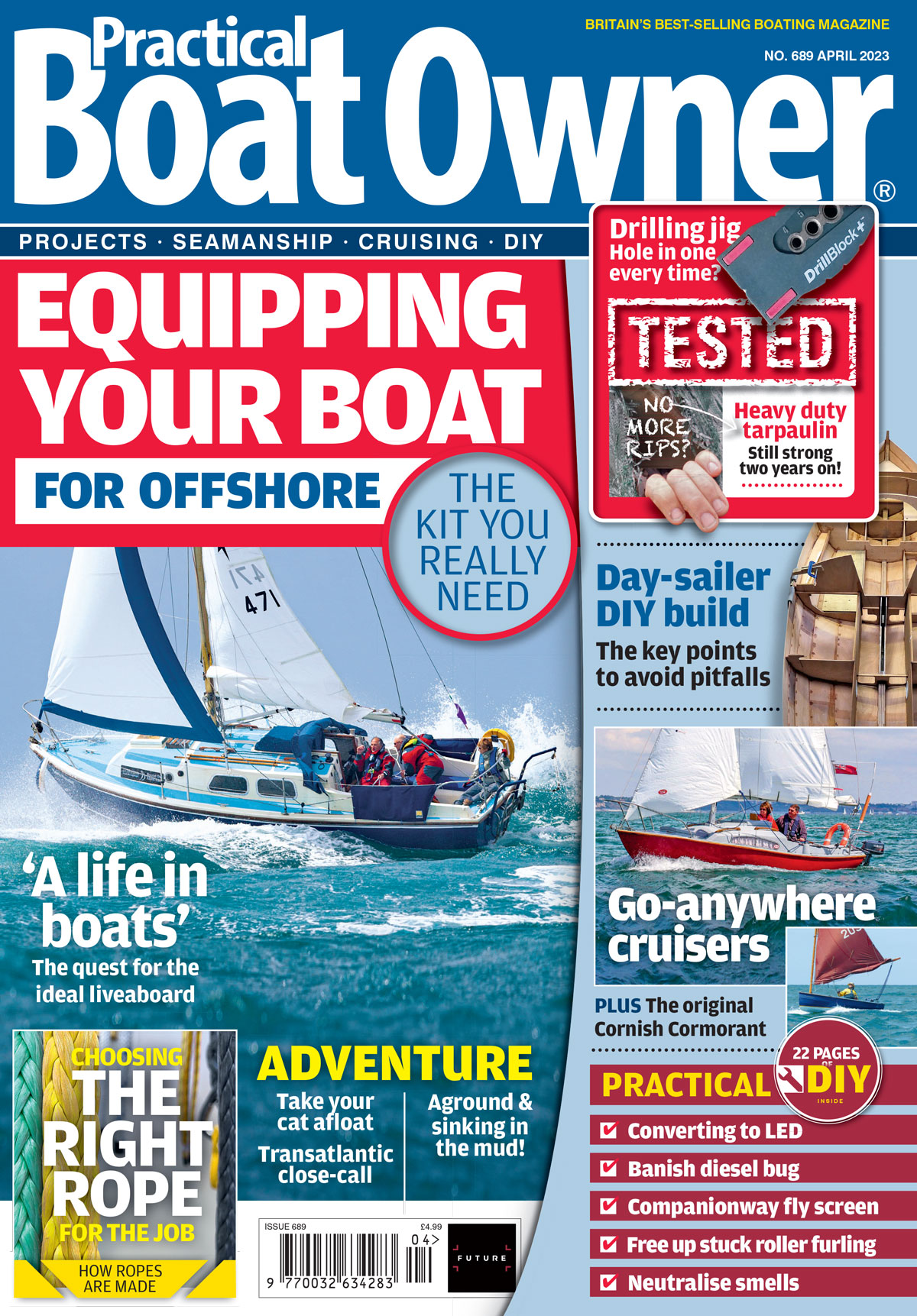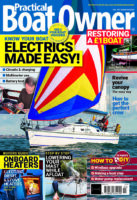When it comes to a boat engine, which is best? Petrol or diesel, inboard or outboard? Stu Davies answers your questions
Graeme Bolten writes: “A discussion in our club bar centred around the boat engine and which was better, petrol or diesel, inboard or outboard.
Everyone with one or other type of engine on their boat had good reasons why they thought they were best – or in some cases totally unsuitable! – but I’d be interested to know your views?”
Continues below…
Ask the Experts: Passerelle problem
A reader's question about med mooring gets answered by PBO's experts
Ask the Experts: repairing a Westerly Oceanranger
A reader's question about survey and corrosion gets answered by one of PBO's experts
Ask the Experts: Yanmar starting quandary
A reader's question about engines gets answered by one of PBO's friendly experts
How to service a marine diesel engine in 12 simple steps
It was time to service the marine diesel engine on our Maxi 84 cruiser. Knowing how to diagnose and fix…
PBO engine expert Stu Davies comments: “An interesting question. In the ‘olden days’ petrol engines were relatively easy and cheap to manufacture, lighter and simple to operate and easily maintained by owners.
And 2-stroke versions were even more so.
This is why many older boats were fitted with petrol motors – through they then had a reputation of growing cantankerous with age.
Diesel engines had to have expensive, and more technically challenging to manufacture, fuel injectors and high pressure fuel injection pumps to make them work.

Large outboards make sense on sports boats and RIBS. Credit: Thomas Kyhn/Alamy
Petrol engines usually gave more brake horsepower per cubic centimetre capacity but diesels were more fuel efficient and in road vehicles gave more miles per gallon in relation to capacity and low speed torque.
They were more efficient because their precise fuel injection components gave the ability to tightly control the amount of fuel injected for the best performance and because the diesel fuel is ‘heavier’.
Basically the heavier the fuel, the bigger the bang for the buck.
Petrol engines rev higher than diesel engines to give their desired performance, a function of their design.
Petrol engines are lighter because they use lower compression ratios than diesels.
Lower compression ratios mean the piston, connecting rods, etc. don’t have to be as strong and heavy as the diesel ones that have to deal with the higher compression stresses and strains.

Workmanlike and easy-to-maintain installation of a Beta diesel inboard
yacht engine
The compression ratio is the ratio between the swept volume of the cylinder and the combustion chamber.
This is because the diesel engine relies on the heat of the compressed gas in the combustion chamber, generated by the piston compressing the swept volume, to ignite the fuel.
Petrol engines have a spark plug to do this.
You can experience the effect of compression when you use a bicycle tyre pump.
Even a single swift pump generates enough heat in the barrel of the pump to be uncomfortable to your hand.
This heat is what ignites the fuel in a diesel engine.

Diesel-powered stern- or jet-drive RIBS find favour with the military. Credit: Neil Watkin/Alamy
As the years have gone by petrol engines have become more technically complicated – as have diesel engines – with electronic control systems, but the weight is still there in the diesel because of the need for more substantial components to withstand the higher compression ratio loads.
Diesel engines, however, are renowned for their longevity – again a function of how they work – as they don’t rev as high as petrol engines.
In general, the economical band for petrol vehicles is between 1,500rpm and 2,500rpm (for diesels it is between 1,300rpm and 2,000rpm), and these bands are the same for the vast majority of road vehicles and consequently our boats because our engines are mostly based on car or truck engines.
Simply speaking diesel engine pistons don’t travel as far as petrol engine ones for a given use and they are more substantially built.
Why diesel in yachts?
Why are diesel engines used predominantly in our boats? Diesels are economical, are rugged in their build and are relatively easy to maintain.
They also give a lot of low down torque which is important in our use. Basically they are safer because of the fuel they use.
Petrol can be pretty dangerous when used in a boat. Fumes are the problem – any leaks and the petrol becomes a gas which can settle in the bilges and can explode.
Diesel is inherently safe, it doesn’t evaporate to form explosive gas and in fact you can drop a lighted match in a container of diesel and it won’t explode.
Petrol engines are fine for use in open sports motorboats where the leakage factor can be catered for with plenty of fresh air.
If the boat is set up properly, bilge blowers will be installed and used prior to switching on the engine to get rid of potential petrol fumes.
Inboard or outboard?
Most of our sailing yachts have inboard diesel engines, for the reasons already outlined, and because outboards have their limitations when a displacement sailing boat starts pitching in a big sea and the prop doesn’t stay in the water.
Outboards can work well if the yacht is specifically built to take them – in a well, for instance, or if designed with a large outboard motor in mind as with the MacGregor power sailers – but otherwise they’re really only useful as an auxiliary on an outboard bracket.
Then there is the issue of alternators. Inboard engine alternators can produce 60A-plus of electrical power and are good for supplying a lot of power for house batteries.
Outboards are not so good. There is also the case for diesel for use in outboards.
Despite recent advances small diesel outboards are still not mainstream.
Larger units can be seen powering RIBS, sportsboats and military vessels, but for a yacht they’re not so suitable.
So petrol versus diesel for our sailing boats? Diesel wins hands down.
Petrol in a sports boat? Petrol hands down.
Inboard or outboard? For me, inboard every time.
Enjoyed reading Petrol or diesel, inboard or outboard: which boat engine is best?
A subscription to Practical Boat Owner magazine costs around 40% less than the cover price.
Print and digital editions are available through Magazines Direct – where you can also find the latest deals.
PBO is packed with information to help you get the most from boat ownership – whether sail or power.
-
-
-
- Take your DIY skills to the next level with trusted advice on boat maintenance and repairs
- Impartial in-depth gear reviews
- Practical cruising tips for making the most of your time afloat
-
-








